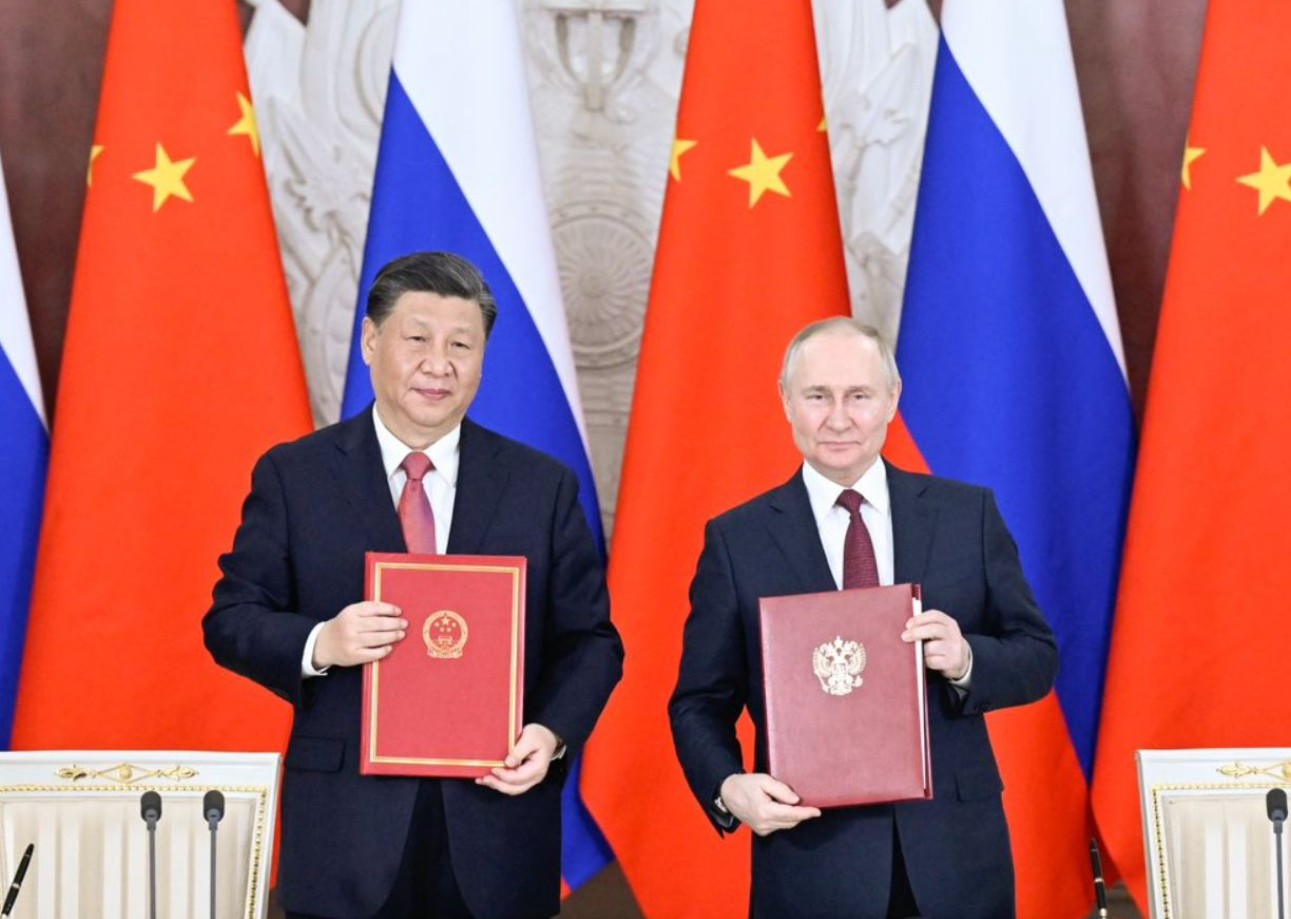By: K. SRINIVASAN
Collins Dictionary describes Russian roulette as indulging in something “very dangerous because it involves unpredictable risks.”
Well, this phrase can be perfectly applied to what is happening at the moment with respect to the sale of Russian oil, the complexities of transporting that crude from Russia, lobbying in the U.S. against sanctions for being involved in this activity through agents who have earlier represented Russian oligarchs and are also working to get a waiver for Venezuelan oil to replace the Russian crude!
According to the Financial Times: ‘The founder of Swiss oil trader Paramount Energy & Commodities S.A. has hired a former aide to Joe Biden to help prevent potential U.S. sanctions after being targeted by the U.K. government over his involvement in trading Russian oil.
The individual in question is Dutch global trade heavyweight Niels Troost. One of the most high-profile European traders (non-Russian) involved with Russian commodity trading, Troost, has been in the spotlight since sanctions kicked in after the Russian Army went to war with Ukraine some two years ago.
In November 2023, Troost was sanctioned by the Conservative Government in the U.K. The first to be sanctioned was a Dubai-based subsidiary of Paramount Energy and Commodities, and then Troost and his flagship Geneva-based company were also sanctioned.
The sanctions were essentially to signal that the number one U.S. ally was taking notice of the fact that Troost and his “companies (were) accused of shipping or trading Russian oil in violation of Western rules.’” What the U.K. sanctions did was to put Troost and Paramount sharply in focus for the United States to slap their own set of sanctions.
Enter Ankit Desai—a former aide to U.S. President Joe Biden and a formidable Indian-origin lobbyist in Washington. According to the F.T., ‘’Desai’s AND Partners LLC will provide services including “research on considerations around potential imposition of sanctions administered by the United States Office of Foreign Assets Control upon [Troost], and/or businesses entities with which
[Troost] is associated, states the contract, dated February 26. Fees amount to $100,000 a month, AND Partners will also assist in identifying, and advocate and communicate with “key U.S. civilian and government personnel to advance [Troost’s] personal and commercial interests.”
The UAE and Dubai, in particular, have been the most preferred locations for companies hoping to continue trade with Russia through subsidiaries or brand-new corporations set up in the Gulf. In its sanction of Troost and his companies, the U.K. Treasury Department said that Troost and companies owned by him facilitated “the unfettered trade of Russian oil outside the reach of U.K. and G7 sanctions”.
Desai’s skill as a seasoned Washington lobbyist—he has wide contacts in both the Democratic and Republican Parties—can be gauged from the fact that TikTok contracted him last year, according to the respected website The Hill, “to lobby on regulation of content platforms.”
He is viewed as an oil industry specialist who has worked with many companies in the sector. He has also worked with Mark Warner, the head of the Senate Intelligence Committee, as well as the U.S. President’s climate envoy and former U.S. Secretary of State John Kerry.
Meanwhile, according to Bloomberg, Desai “has been hired to lobby for Indian refiner Reliance Industries Ltd. as it seeks to have restrictions eased on importing Venezuelan oil. Ankit Desai will work as a subcontractor to law firm Eversheds Sutherland US LLC, which represents Reliance in matters related to Venezuelan sanctions imposed during the Trump administration, according to a person with knowledge of the situation. Reliance is seeking to resume imports of Venezuelan oil in exchange for supplying diesel.’’
Parallelly, according to the Economic Times, quoting Reuters, “Reliance has decided not to buy Russian oil loaded on tankers operated by shipper Sovcomflot (SCF) after recent U.S. sanctions, according to two sources familiar with the matter….Reliance, a large buyer of Russian Urals oil, has requested that the new supplies not be shipped by Sovcomflot-operated tankers. The development adds to oil export problems for Russia as its oil firms may face difficulties finding ships to sell surplus oil after recent Ukrainian drone attacks on the state’s refineries. Russian companies are already struggling to collect payments for oil exports due to banking restrictions.’’
In another move, the U.S. on March 25 imposed sanctions on “13 Russia-linked fintech companies and two individuals for offering cryptocurrency services used to evade economic restrictions imposed on Russia following its invasion of Ukraine.’’
In a news release, The U.S. Department of Treasury quoted Under Secretary of the Treasury for Terrorism and Financial Intelligence, Brian E. Nelson: “Russia is increasingly turning to alternative payment mechanisms to circumvent U.S. sanctions and continue to fund its war against Ukraine,” said, “As the Kremlin seeks to leverage entities in the financial technology space, Treasury will continue to expose and disrupt the companies that seek to help sanctioned Russian financial institutions reconnect to the global financial system.”
According to The Record, which focuses on Fintech, cyber theft, and crypto operations, the U.S. Treasury Department’s new spate of sanctions comes two weeks after Russia announced that it had banned entry to 227 U.S. citizens, including prominent journalists, researchers, and government officials, for supporting what the Kremlin called “Washington’s Russophobic policies.”
The Russian companies sanctioned by the U.S. have “either helped build or operate blockchain-based services or enabled virtual currency payments in the Russian financial sector, thus enabling potential sanctions evasion.”
The list includes Moscow-based fintech companies such as B-Crypto, Masterchain, and Laitkhaus, which have partnered with sanctioned Russian banks to issue, exchange and transfer digital financial assets. Another designated entity, Atomaiz, has been involved in tokenizing precious metals and diamonds for Russian companies.’

The latest, according to Politico, is “some China hawks in (U.S.) Congress are now considering blacklisting lobbying firms that represent TikTok or ByteDance from any meetings with congressional offices’’.
Ankit Desai’s AND Partners is one of the companies in question. Many believe that next in line will be lobbyists representing companies and individuals well known to have their hand in the Russian pie that does business out of Dubai and elsewhere. Slowly but systematically, the U.S. wants anything Russian or even Chinese either sanctioned or squeezed out of contention.
Another startling development reported by Reuters on March 22 is the E.U. proposal “to redistribute billions of euros in interest earned on frozen Russian assets,’’ which has been agreed upon with work on a plan to use up to 3 billion euros ($3.3 billion) a year to supply arms to Ukraine as they try to bolster Kyiv’s fight against Russia, which would still own the underlying frozen assets. E.U. leaders said the proceeds could be used within a few months.
Many EU Banks are opposing the move because they fear that they could be held liable “if they are involved in any transfer of money to Ukraine” at some future date.
As a second step, the E.U. is also proposing to consider using the interest from the frozen assets of ‘’sanctioned individuals and companies.’’ Intense lobbying to try and stop the move also talks of how “the proposals will lead to a wider erosion of trust in the Western banking system.’’
- OPED By Veteran Journalist K. Srinavasan
- Views Personal Of Author




